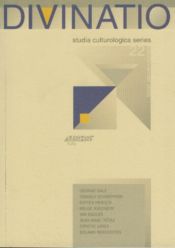

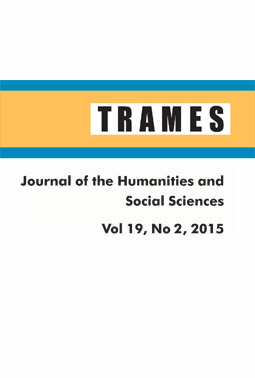
Keywords: Jēkabs Osis; Teichmüller; Leibniz; metaphysics; personalism; substance; individual; history of philosophy; epistemology; University of Tartu
Jēkabs Osis (1860–1920) is the first academically educated Latvian philosopher and one of the founders of the University of Latvia. However, Osis never worked there. His academic life was closely tied with the University of Tartu, where he studied theology, philosophy and eventually became a professor of philosophy. Inspired by his mentor, professor of philosophy, Gustav Teichmüller, Osis turned his attention to the works of Leibniz, most notably those about the nature of substance. Osis aspired to unify the understanding of the notion of substance with the necessity to substantiate the immortality of individual entities. Osis criticized the philosophy of Leibniz and verified a new understanding of substance that is found in the works of Teichmüller.
More...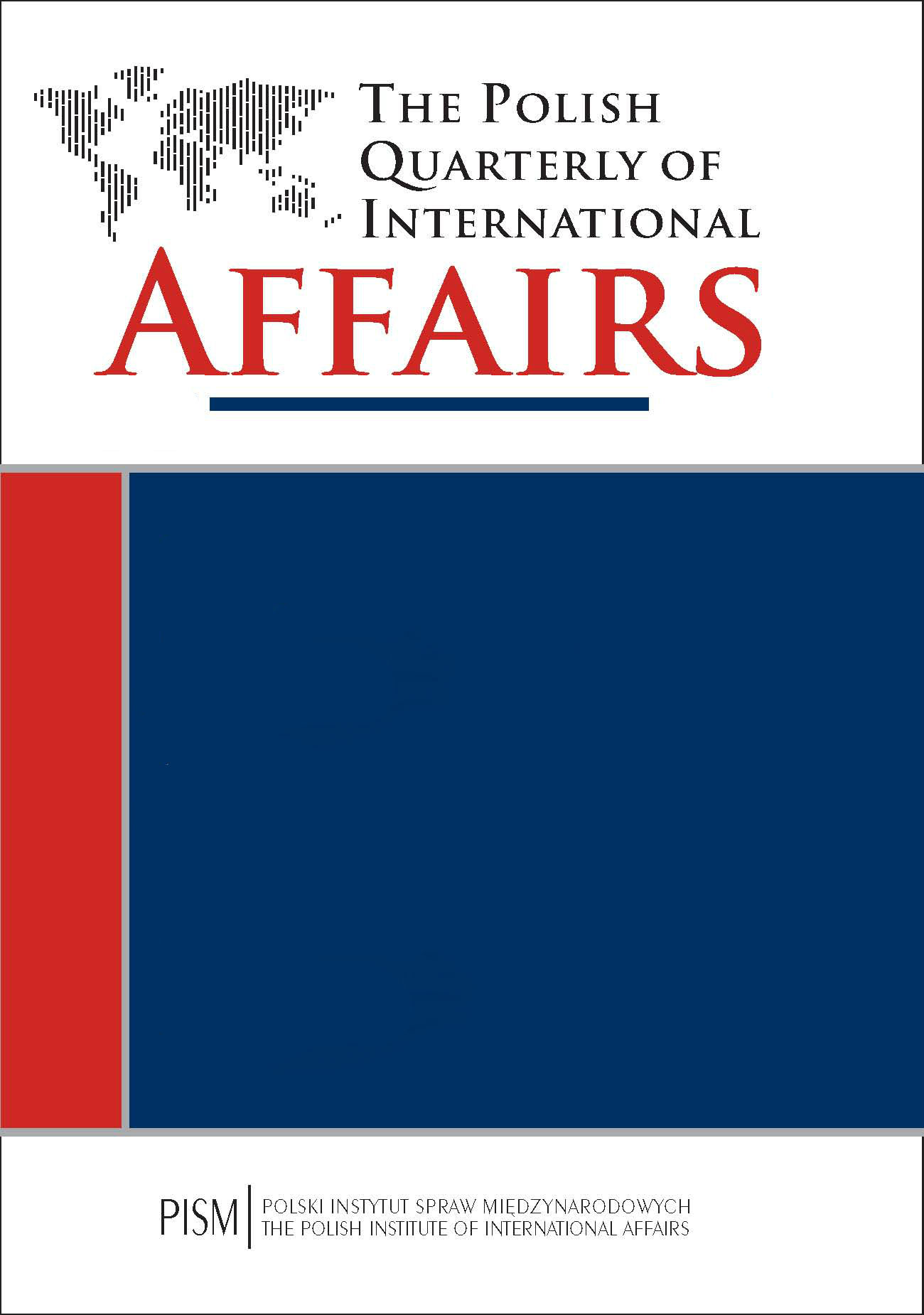
Keywords: NATO
The Strategic Concept adopted by NATO in Lisbon in November 2010 elevated territorial missile defence to a core element of NATO’s collective defence. It put an end to deliberations as to whether NATO members should have the capability to defend their territories against limited ballistic missile threats. In addition, it was the catalyst for concrete discussions as to the requirements for missile defence architecture and functioning of the system.
More...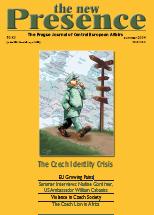
To the outside observer, the Czech Republic’s first ever elections to the European Parliament in June certainly painted a confusing portrait of the Czech electorate. Just over a month after voting overwhelmingly in favor of joining the EU, less than one in three voters bothered turning out to decide who would represent them in one of the European Union’s most important institutions. Most of those that took the trouble to vote actually plumped for Euroskeptic candidates. As a result, many of the Czechs’ European partners could be forgiven for thinking that they are receiving mixed signals from a country whose geographical position places it at the heart of a new enlarged Europe. This lack of coherence and direction in Czech politics is taken up by journalist Jan Urban in his review of the Czech political scene over the last few months.
More...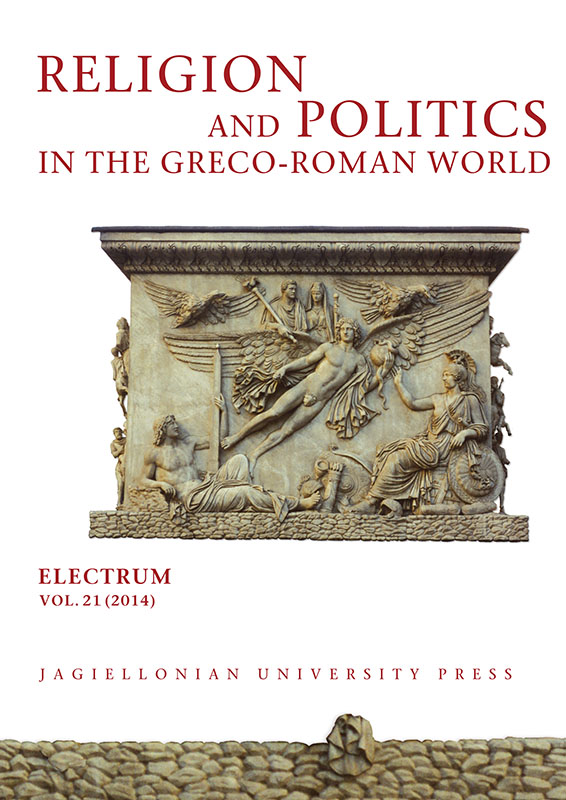
Keywords: Flavians; Vespasian; Titus; Domitian; religion
Vespasian and his sons were forced to create their own style of politics, and, in search of auctoritas and maiestas, they could not neglect the realm of religion. We should bear in mind that in the Roman world, religion was an integral and indispensable component of social and political life. For these reasons, these representatives of the Roman Imperial Dynasty, just like their predecessors and successors, successfully used different forms of activity surpassing the narrow interpretation of the domain of religio, including massive building programmes, monetary policy or even poetry, to express devotion and respect for mores maiorum as well as to confirm the legality of their power by presenting the divine approval of their political strength.It seems legitimate to acknowledge that the Flavian era did not bring revolutionary changes in traditional religion. This clearly shows that the new dynasty was perfectly aware that one of the aspects of a well-functioning Rome was preservation of the ancestors’ customs and a belief in divine protection which could ensure safety, strength and belief in the unity of the Empire.
More...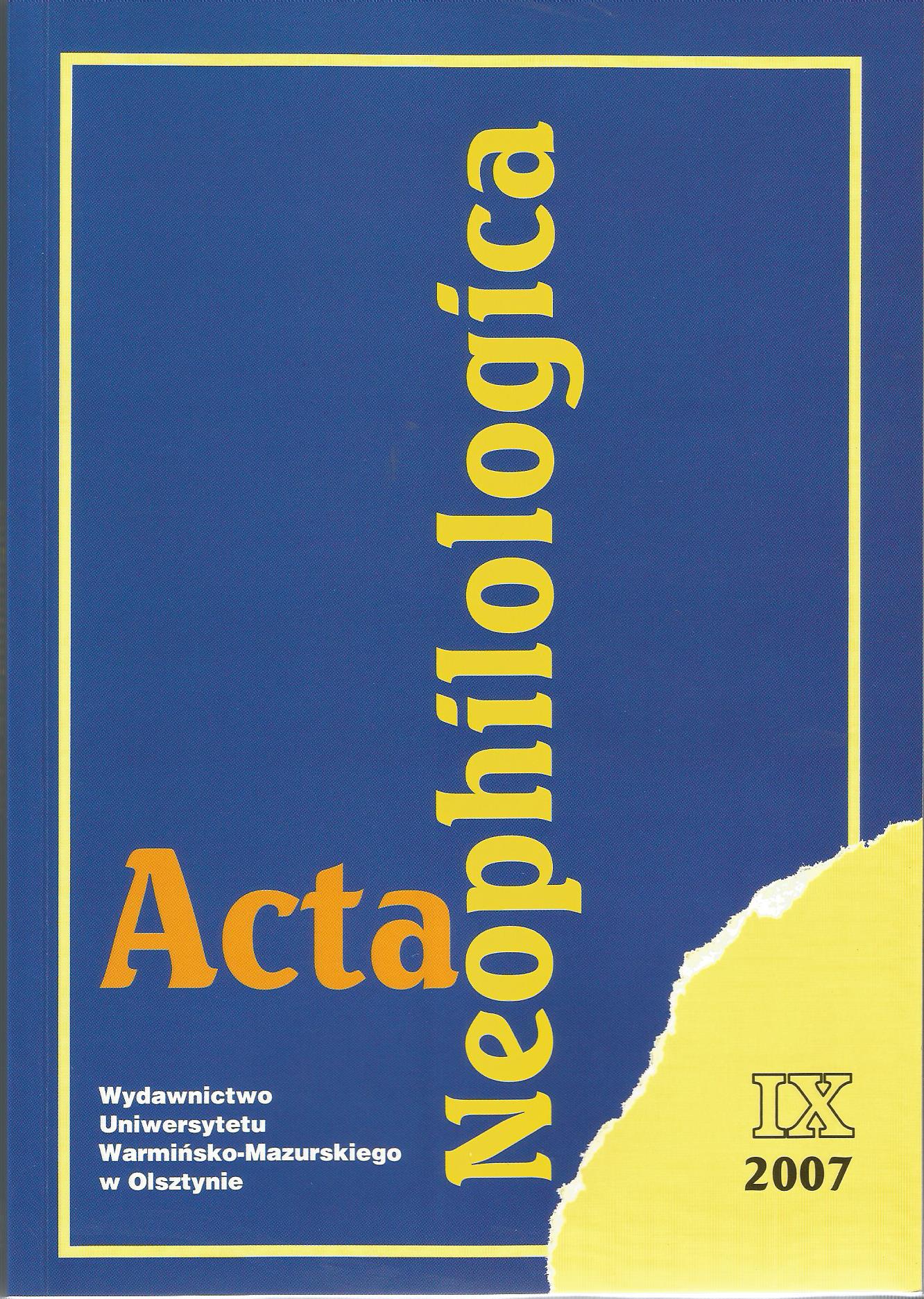
Keywords: translation; revision; translation senes; Heart o f Darkness; recodification
The article aims at providing a provisional answer to the question conceming the finality of the translation process. The main point of interest is the status of the revised version of a published translation, that is whether the revision is to be treated as a new realization of a particular literary work (and consequently enriching the translation series of this particular work) or introductory part, the article examines shortly the models of the process of translation focusing on including the stage of revision into it. The analytical part discusses examples of changes intro- duced in the revised version of Aniela Zagórska’s translation of Joseph Conrad’s Heart of Darkness in comparison with the first published version. The analysis refrains from pointing out corrected mistakes or updating lexical items, syntax and spelling. It focuses on the changes in the treatment of key expressions (heart and darkness, the horror) as well as some examples of structural repetitions and changes of lexical items connected with nautical terminology. On the basis of the investigation one may conclude that the introduced changes do not involve merely intralingual shifts in order to make the revised target version more natural. Rather they involve alterations which stem from a meticulous hermeneutic analysis of the original work and noticing a careful patterning of the lexical items and structures so that this patterning may be reflected in the translation and provide for new interpretative possibilities. Consequently, in William Frawley’s terminology, the translation code in the revised version is modified to such an extent in comparison with the code of the first translation that one may venture the hypothesis that the result isa new realization of this particular literary work.
More...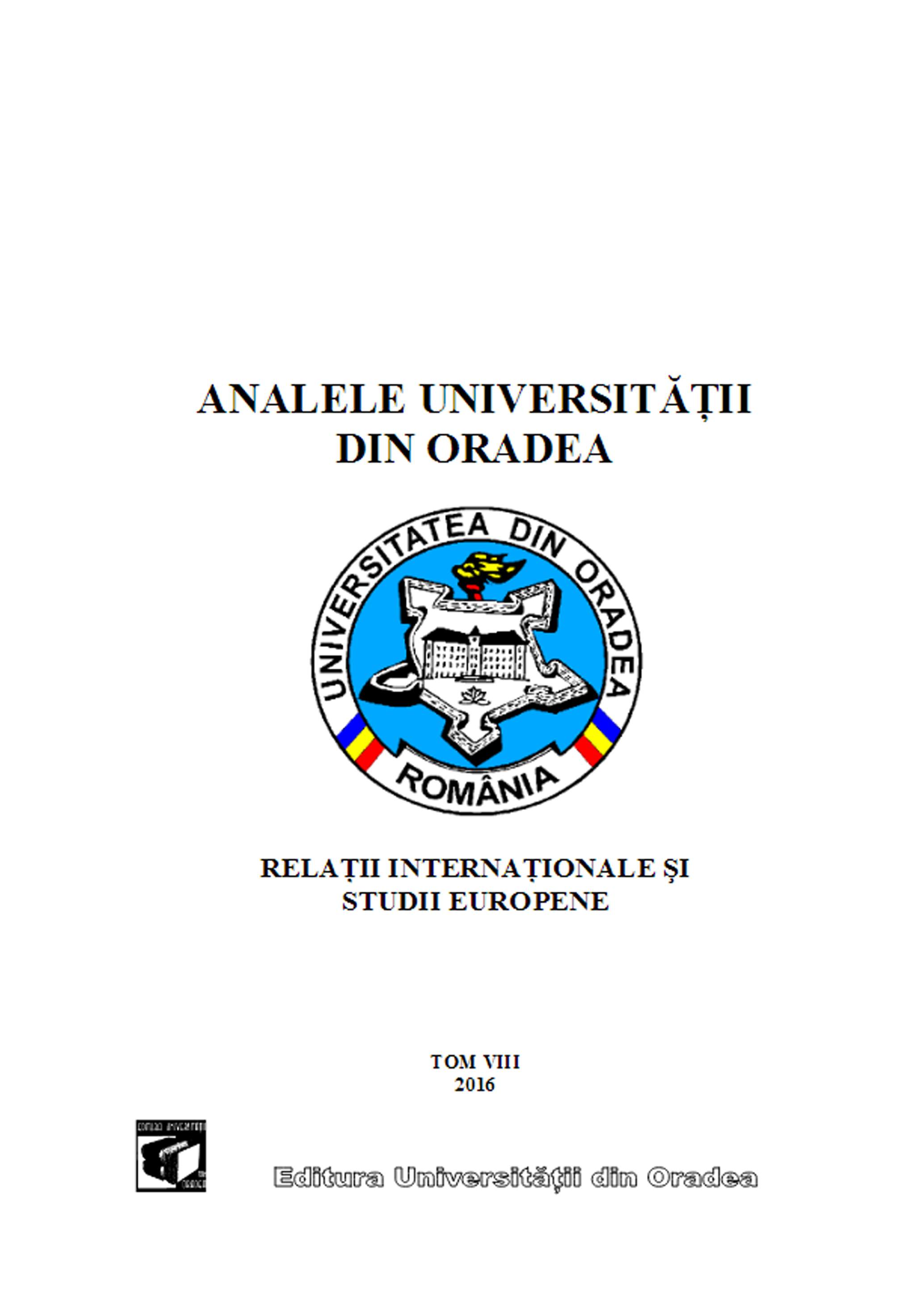
Review of: Paul ALLIES. Le rêve d’autre chose. Changer la République ou changerde République. Don Quichotte Edition, France, 2017. ISBN 978-2-35949-599-7
More...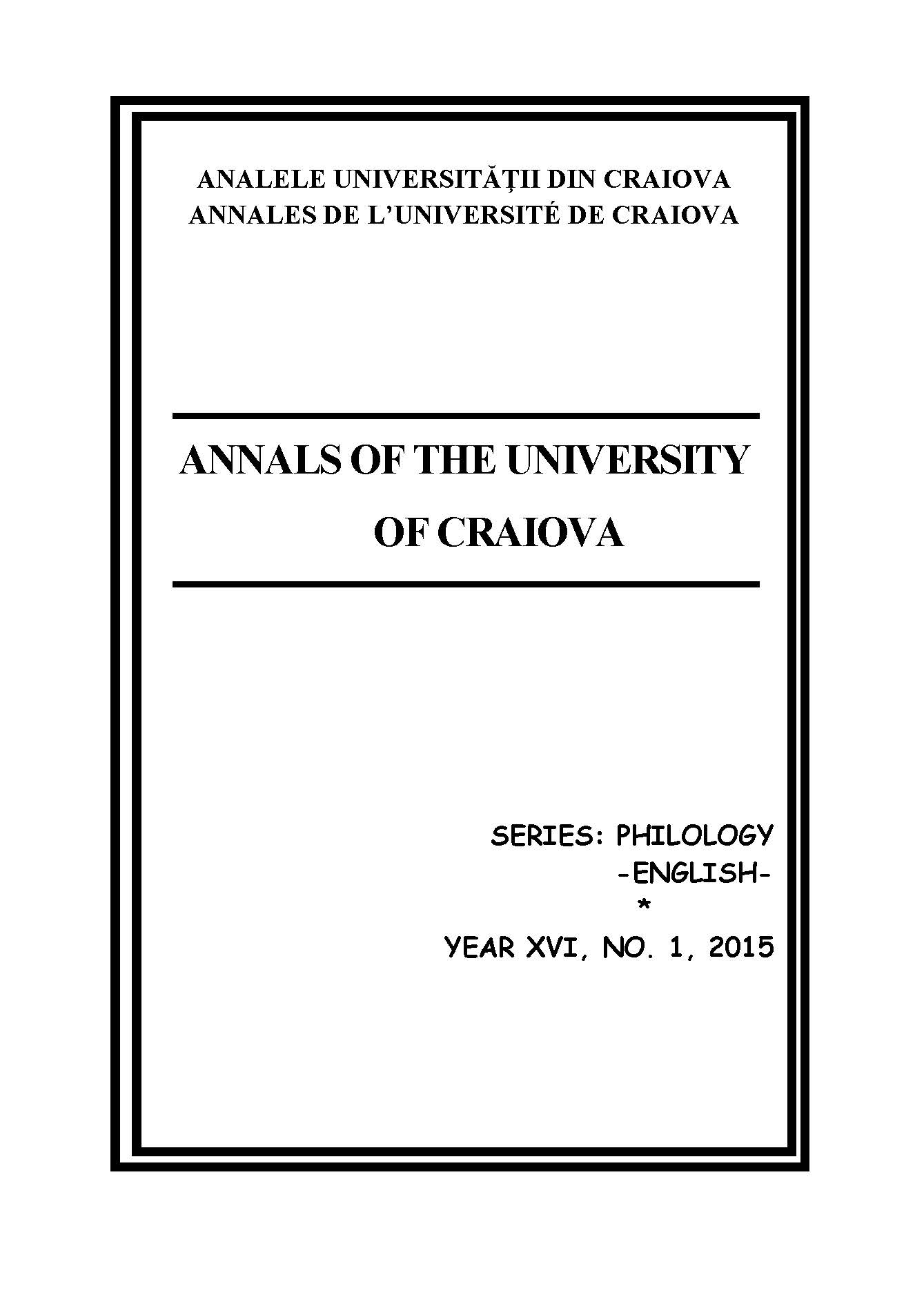
Keywords: equivalence; legal translation; legal culture; errors; law students.
Equivalence in translation may refer to the transfer of a message from the source language to the target language or the decoding of the SL text, just to encode it again in the TL. Despite various theoretical approaches establishing several types of equivalence (grammatical, textual, functional, pragmatic, etc.) and proposing solutions for those in search of the right equivalent, practice remains the real and constant challenge. The challenge is even greater as far as legal translation is concerned, since it involves the transfer of a message not only from one language to another, but from one legal culture to another. Legal cultures have been shaped by an amalgam of factors depending on the historical evolution of each society, with its own law system. The contact of languages and cultures determines mutual influences and interactions and from this perspective, the translation process should be facilitated. Yet, legal notions and concepts have evolved in different directions from one society to another, therefore finding the right equivalent in legal translation is a difficult and creative task. In this framework, the paper also analyzes some errors that law students make while attempting to use translation as a tool meant to build a bridge between two legal cultures.
More...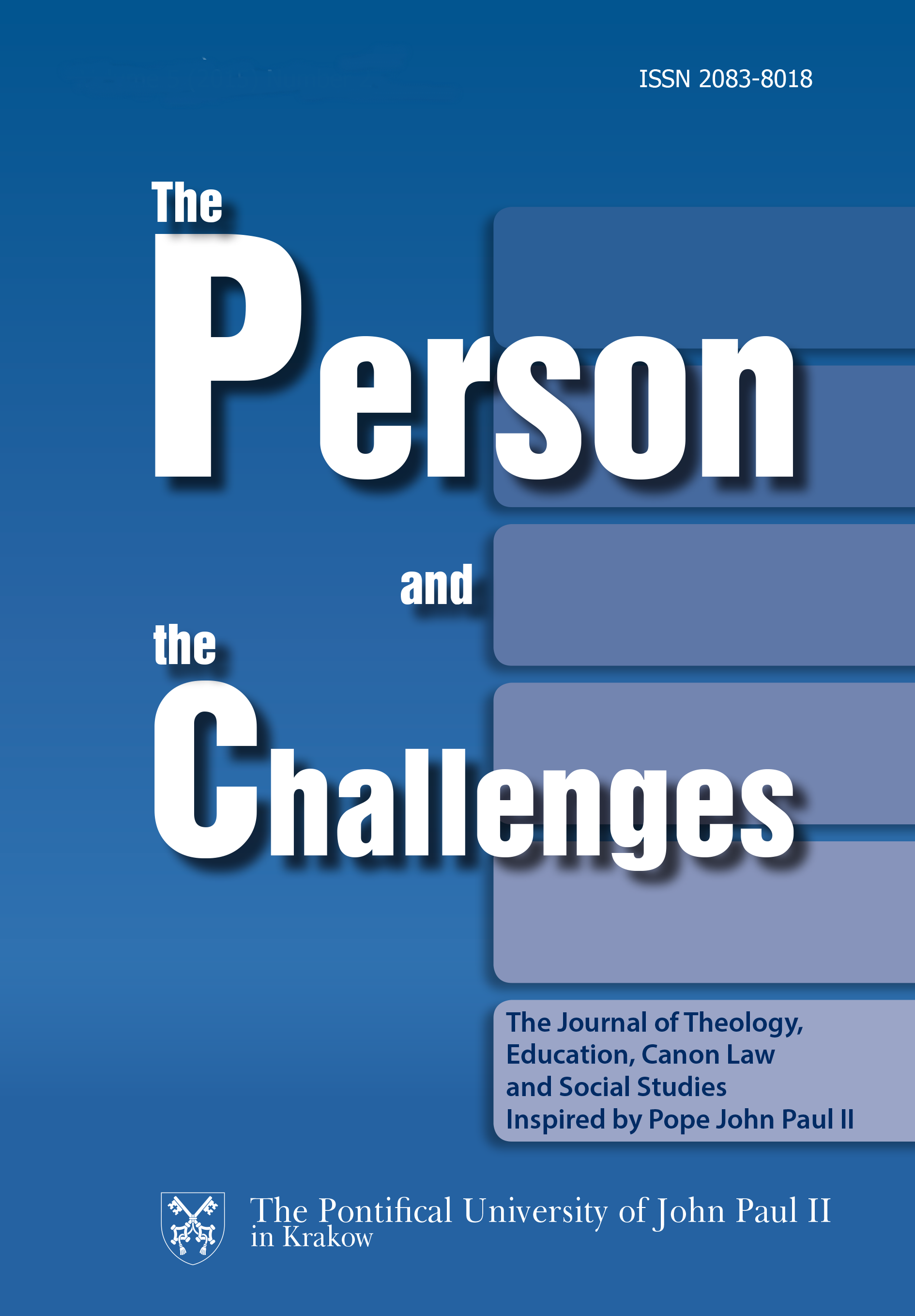
Keywords: Church; communication; dicastery; Dario Edoardo Viganò; media; Pope Francis; reform; Roman Curia; technological development; Vatican; Vatican Radio
Rapid technological changes, which are mainly the result of the progress in computer technology, in the last decades of the twentieth century, have touched every area of life and have enforced numerous innovations. Modern ways of communication and exchange of information, especially the development of social media, have led to a significant and complex transformation of the traditional media. Practically all media companies around the world, in order to maintain their position on the market, have had to make decisive modifications of their ways of working. On one hand they remained available to the users of traditional media, but on the other hand, they look for effective ways of reaching all those who are using only new ways. Similarly, the Vatican media could not remain indifferent to the issues mentioned above. For several years the Vatican has initiated a process of preparation for a general reform of its media institutions. However, these works have accelerated at a great rate during the pontificate of Pope Francis. The reform of the Vatican media is not an easy task. It concerns several independent institutions. Each one of them has their own history and way of announcing the Gospel. The widespread computerization, especially the development of the internet and social media, has also forced the Vatican to reflect on new ways of communicating. Among many questions, the most important were about the effectiveness of evangelization through the media, the ways of spreading the Pope’s message around the world to as many faithful as possible, and about the costs of necessary investments that would allow further, dynamic development and effective functioning of the Vatican media. After the resignation of Pope Benedict XVI, the problems of the reform of the Roman Curia and the necessary savings were raised again during the discussions of the cardinals on the congregations preceding conclave. It became clear that the structural changes in the Vatican would be one of the challenges which would face the next successor of St. Peter. As from the very start of his pontificate, Pope Francis emphasized the necessity of the deep reform of the Roman Curia. The evaluation of the entire media structure of the Vatican was one of the first reforms to be tackled. The reform of the Vatican media has already begun. In the Apostolic Letter as a Motu Proprio, published on June 27, 2015, Francis set up the new Vatican dicastery: The Secretariat for Communication. The plan of changes in the Vatican media prepares for the possibility of any difficulties and turbulences. A four‑year restructuring process was planned. The year 2015 was dedicated to the creation, elaboration and consolidation of the new Vatican media structure. And it really happened. During the next year, 2016, a common administration for the two major institutions which depended on the new dicastery: the Vatican Radio and the Vatican Television Center, was established. During the year 2017 a similar restructuring process is expected in the next four Vatican media institutions: the Vatican Printing Press, the Photo Service, “L’Osservatore Romano” and the Vatican Publishing House. The process of restructuring of the Vatican media is expected to be completed by the end of 2018. Many details of these changes are raising many questions and concerns, especially among the employees of existing media entities. However, the real questions concern the effectiveness of the new system.
More...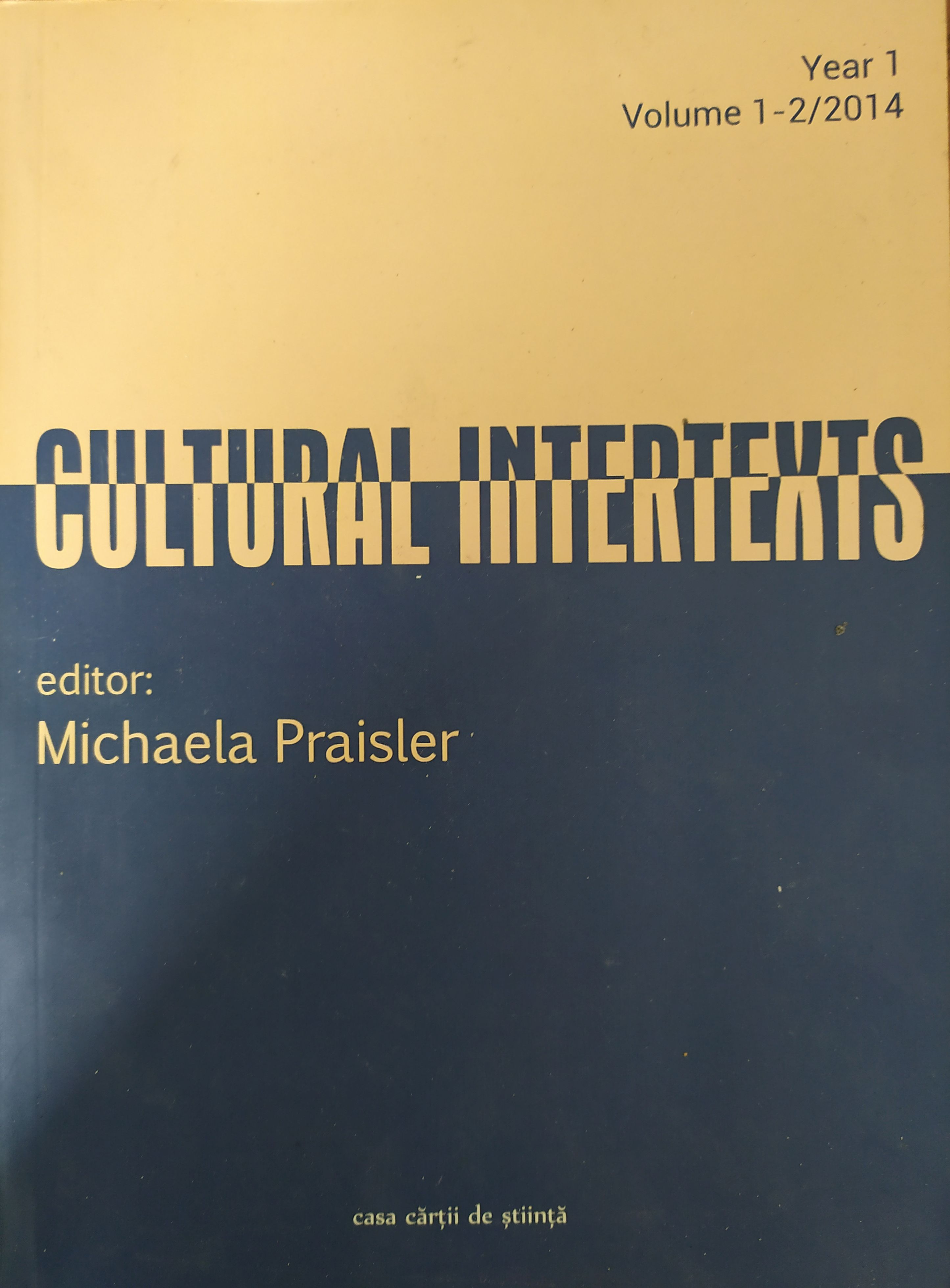
Keywords: translation; universals; proverbs; Romanian literature; Slavici;
Knowledge of the world is disclosed under various shapes, among which language is the best representative. Specific to humans, it renders feelings and thoughts concerning different communication contexts where words become dynamic primitives endowed with meanings, which recreate themes and reconfigure space and time as universal coordinates. The main objective of the paper is to provide a tentative analysis of the way in which translation universals are manifest in translating proverbs and sayings in the short novels Popa Tanda (Pope Tanda) and Moara cu Noroc (The Lucky Mill) by Ioan Slavici.
More...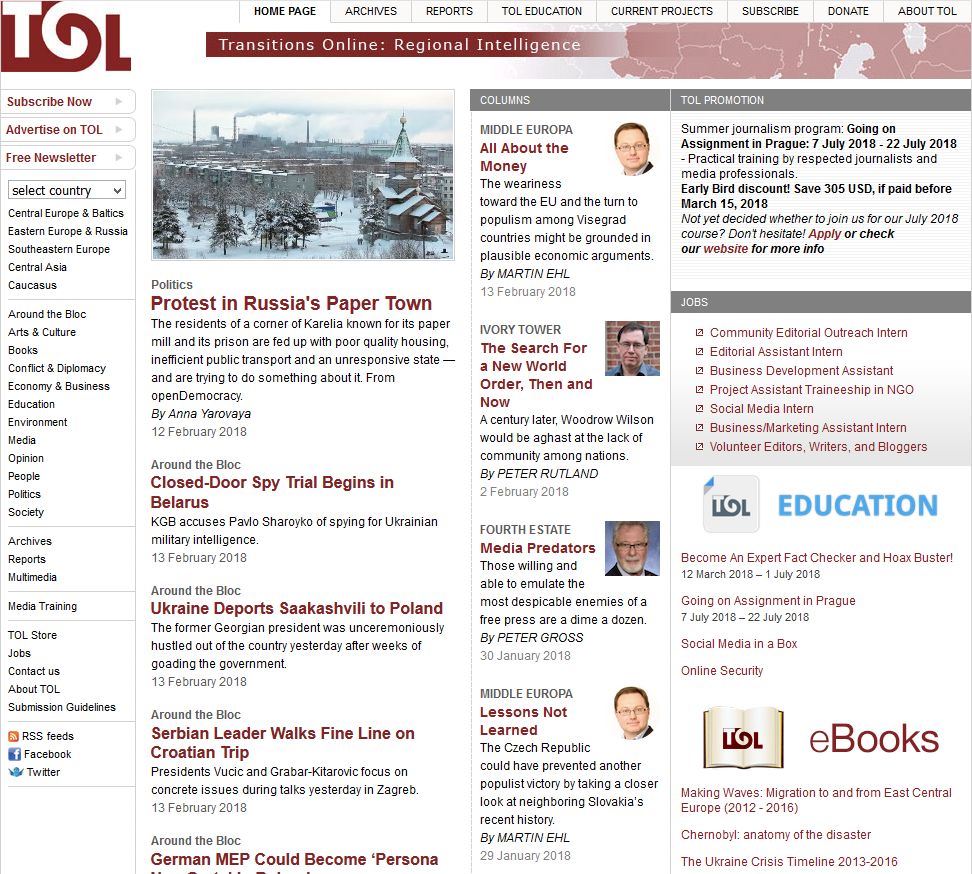
Keywords: Russia; Soviet Union; cold; war; security; Woodrow Wilson
A century later, Woodrow Wilson would be aghast at the lack of community among nations.
More...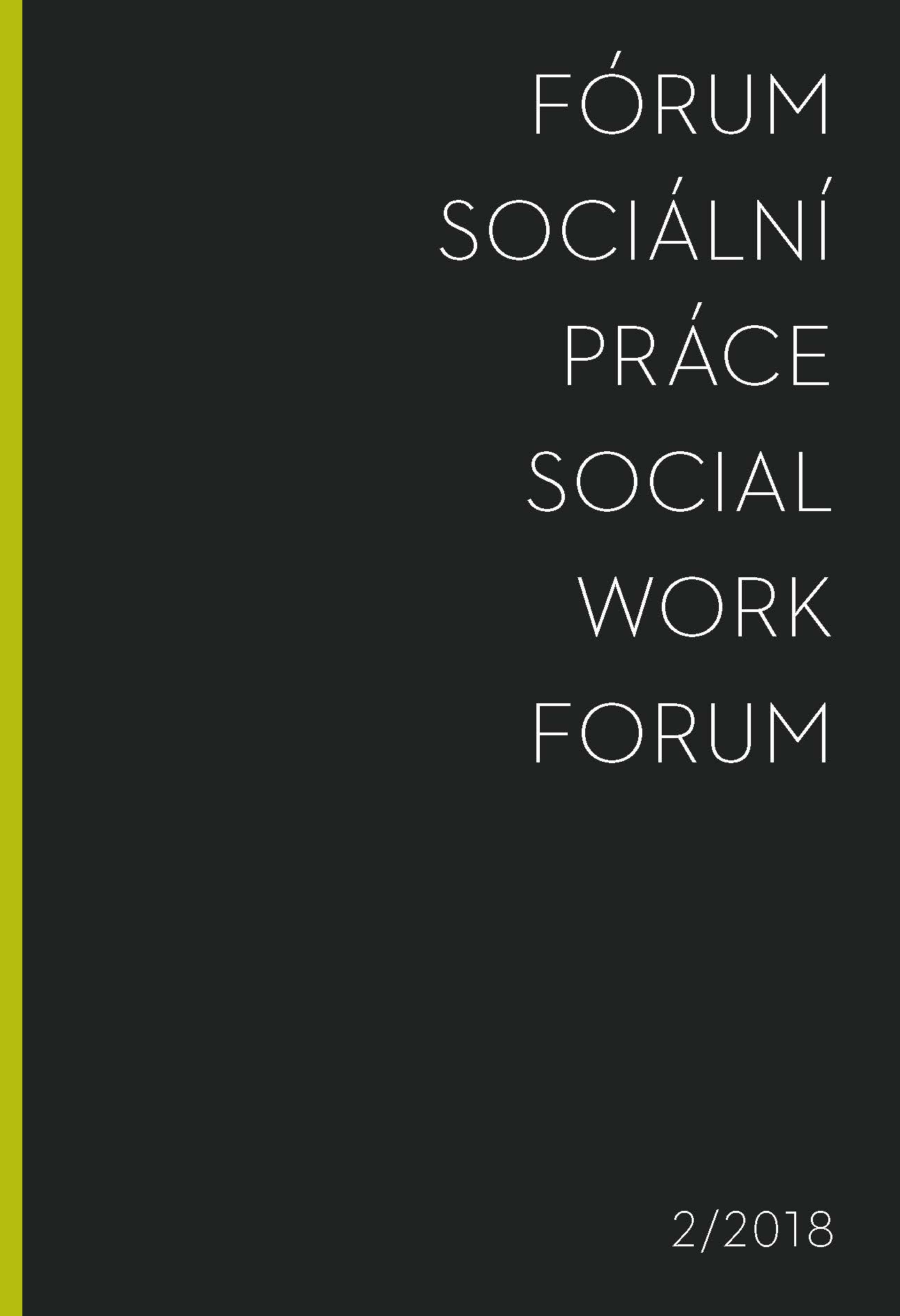
Keywords: social work; modernity; philosophical analyse;search for meaning;
Social work is a clear product of modernity although it builds on values and helping traditions ofpre-modern times. Therefore, its practice reflects and needs to confront many of the ambiguities thatcharacterize processes of solidarity and ‘helping’ under conditions of modernity. Both the progress ofsecularization and the widespread re-emergence of religious affiliations bear witness to this ambiguityand require differentiated responses that neither pay naïve homage to rationality nor advocate anauthoritarian ‘return to traditional values’. It is proposed that a critical acknowledgement of the importanceof dimensions of human finality, derived from, for instance, the theological thought of DietrichBonhoeffer, can provide a basis for a sensitive, value-oriented form of social work practice thatacknowledges the fundamental openness and vulnerability of the human condition without condoningsuffering fatalistically
More...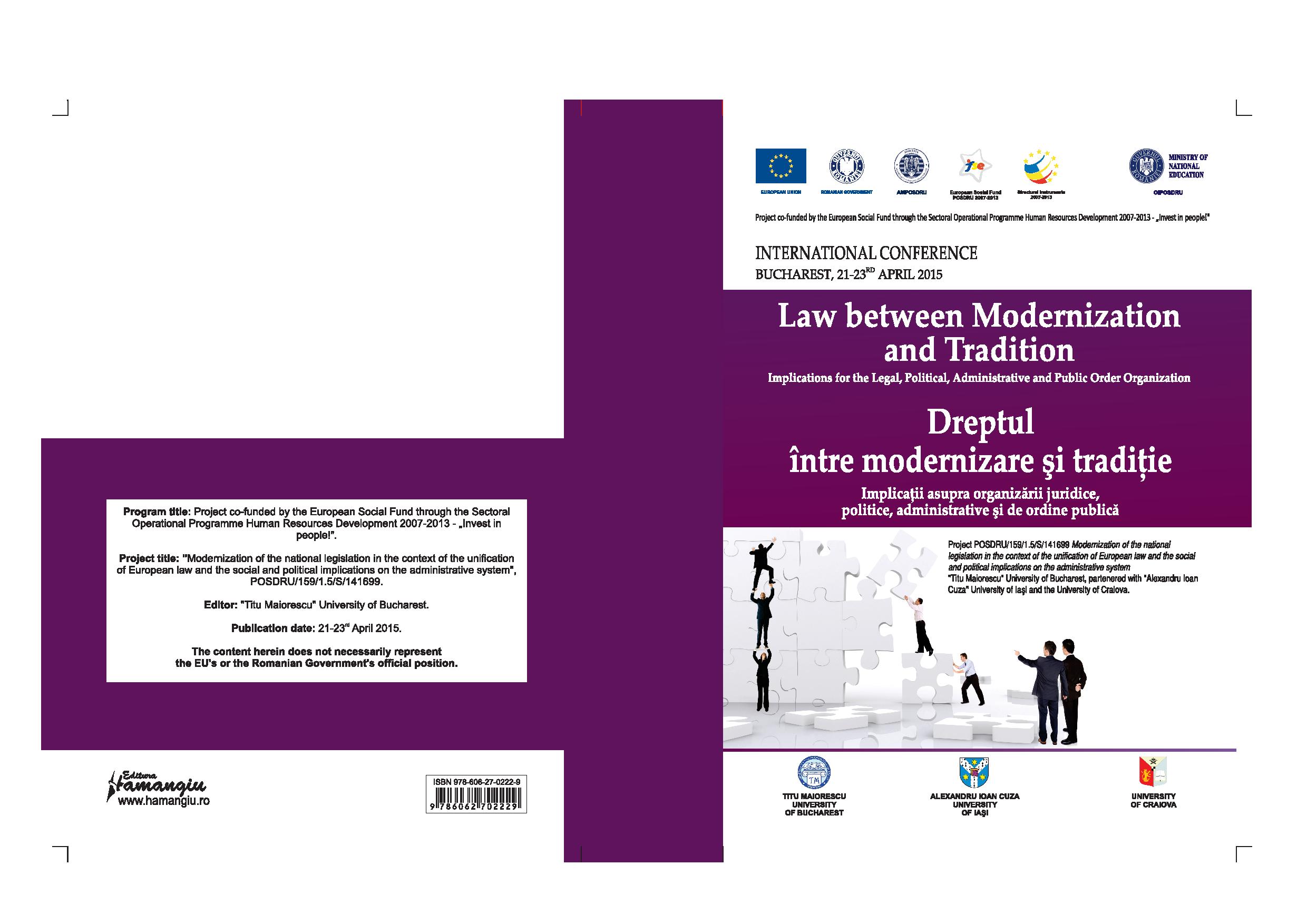
Keywords: Integration process; European Union; Model of Legitimacy; European Federation; Confederal Pact; Confederation; European story; New European Narrative;
Currently the essence of European integration is in crisis : the idea of an open and continuous process in the economy and in the politics. Restart the debate on the basic political model of integration and its democratic modes of articulation is also recovering the very essential aims of the integration process, and the story of the European project. It is proposed in this paper to explicitly discuss a new model of legitimacy to Europe, through a Confederal Pact between States and citizens. The European Confederation could be a new International format for Europe, and at the same time a sound democratic new rebuilding of the EU.
More...Keywords: CT- information and communication technologies; social media; social networking; unemployment; digital divide; digital competence
The rapid development of modern technologies and the Internet are the main reasons why that more and more institutions offer their services through the network. Access to the Internet and the use of modern technology moves into economic development and quality of life of society. In many industries having the IT competences is a prerequisite for getting a job. ICT technologies available (including social media and social networks) can and should be used also in the process of obtaining work. This article presents assess the use of web technologies in Poland for professional activation of Poles especially after 45 years of age.
More...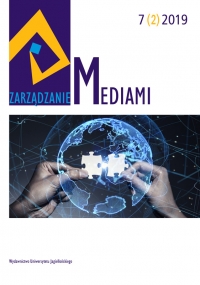
Keywords: media discourse; popular management books; flâneur; dérive; neoliberalism; corporate culture;
Many recent publications hold a dark view of contemporary business administration and its context. The current state of capitalism and corporate management is described as zombie (Harman, 2009), ghostly (Roy, 2014) or, in the most benign appraisal, sick but not dying (Tomlinson, 2010). At the same time, business schools, textbooks and popular management books remain wedded to a reductive view of social interactions, drawing inspiration as well as authority from a century of socioeconomic triumph as well as from the rigid definitions of management relations as handed down by the founding figures of the discipline. Drawing inspiration from Walter Benjamin’s (1969) refiguring of Charles Baudelaire’s flâneur, we revisit the haunted spaces of popular management books, using the situationist method of dérive to invoke the ghosts of foundational thinkers for inspiration and, possibly, exorcism. The aim of this excursion is to propose strategies for communication about some old ideas of management which still can be regarded as vital, even though the contemporary forms may have become morbid (Fleming, 2017).
More...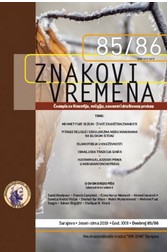
Keywords: modern narratives; occupational category; pictorial details; New Atheism; Scientific Atheism; Richard Dawkins; Lawrence Krauss; Martin Amis; Evan McEwans; God as first principal of Diversity;
Literature and life are interconnected realms of existence. These reflect in creating our perceptions of everyday reality. Understanding everyday reality involves a complex nexus of socio-cultural forces. Writers of these narratives always demonstrate certain personal commitments and at the same time certain amount of autonomy from commitments for their readers to enjoy multifaceted nature of ‘truth’. Work of art “is a filtered commodity” as it is characterized by the personal bias and prejudices of the artist. Writers of our age of information have a tendency to induce within a narrative element of pictorial details which result out of calculated surveys and organized scientific research. Writers’ scientific insight in to scientific atheism has given new dimensions to fiction and criticism in our age which need to be contrasted with traditional view of God as the first principle of diversity to understand the evolution of contemporary fiction. As a result of various perceptions evolving around a work of art more scientific means of evaluation are needed by the researchers; the scientific data, however, can be extremely misleading as well. Cognitive representations and strategies to circumvent ‘the combinatorial explosion’ lead to discourses in psychological understanding of fiction. There are psychological constraints on the process of constructing mental microworlds. Literary images as a result may appear diametrically opposite to the dominant understanding of the mainstream academia but at the same time possibilities of collaborative scientific understanding of literature also appear. It seems that in the world of literary studies in future the empirical descriptions and explanations of psychological and sociological process will be unavoidable.
More...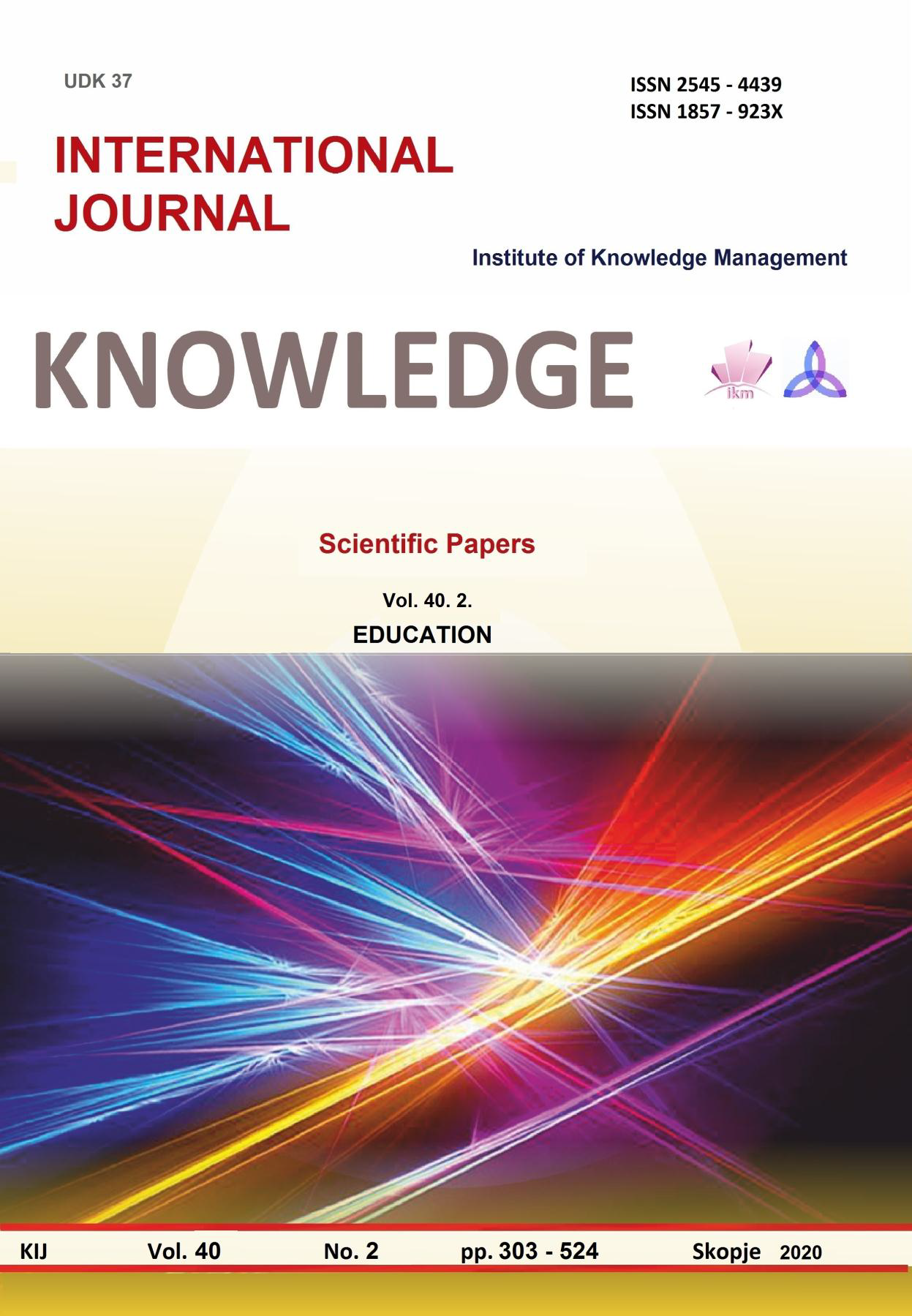
Keywords: effectiveness in the pedagogical process; pedagogical strategies; teaching technologies; best teaching practices
The contemporary world gets more and more complex. Increasingly number of jobs nowadays requires relatively high level of knowledge and skills. At the same time the educational achievements are becoming a necessity rather than an optional extra. The crisis in the economy as well as the increasingly complicated social life require getting better education and social competences as a starting point for success in professional and private life. A good education is critical to get better life chances and a commitment to achieving this has been an important part of the culture of modern people. Environments that consistently fail to prepare students for higher levels of education result in threaten opportunities for high school graduation, postsecondary education, successful career, consequential poverty and low life satisfaction as a whole. In that context, the role of the teacher is undeniably crucial. The teacher plays an undeniably crucial role in the acquiring of new knowledge by students. Furthermore, he/she must also model and direct the learning process, so it might be the most effective. In search of efficiency the teacher often turns into an innovator - finding, testing and implementing new technologies in pedagogy, new approaches, strategies and models for improving the learning process. In this article we review the best pedagogical practices and strategies that lead to improved quality of education in schools. Increasing knowledge and grades is only one criterion for success of students. Other indicators are acquiring important social knowledge and skills (such as communication skills, group work, presentation of ideas, effective time management and meeting deadlines, etc.), developing high personal and professional goals and significant contribution to society in the future. Based on the literature review of a number of empirical researches, report provides an overview of best practices in this area. On this basis, we analyze various approaches and strategies to make this process possible and successful.
More...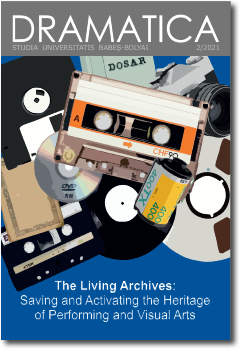
Keywords: music-theatre; performing arts; music; musical training;
This article looks at the major differences in the reception of the sounds of a musical fragment, depending on the personal experience of each individual and his profession. The musicians relate to the sound universe guided by the constituent elements of the scores, and the actors look for connections between sounds, gestures, words, characters, and stage situations. They can approach music in other ways than musicians and remember the melodic lines or create accompaniments by making connections with the context in which they find themselves.In some examples that the article offers, the studied actors demonstrate that sound can become music even in the absence of the vocal or rhythmic qualities of the performers. Other examples refer to the way in which the personality and creativity of artists have a significant role in creating songs or the sound support they need.
More...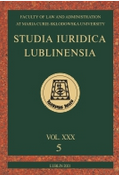
Keywords: neutrality; justification of legal change; liberalism; legislators; judges;
This paper examines neutrality, understood as a necessary requirement for law’s legitimacy. In the conventional, liberal formulation of it, the law must neither favor nor depend on any particular conception of the good. Taking into consideration the critique that the principle of neutrality has received, from within liberalism as well as from rival perspectives, the authors search for an alternative. The proposed solution is the Model of Neutrality as Non-Arbitrariness (the MNN), according to which the making and application of law must seek equilibrium within different justifying reasons that are backing the particular law in question. As such, neutrality under the MNN is conceived as a virtue of legislators and judges which allows them to weigh competing justifications in a manner that appears as best in a particular case.
More...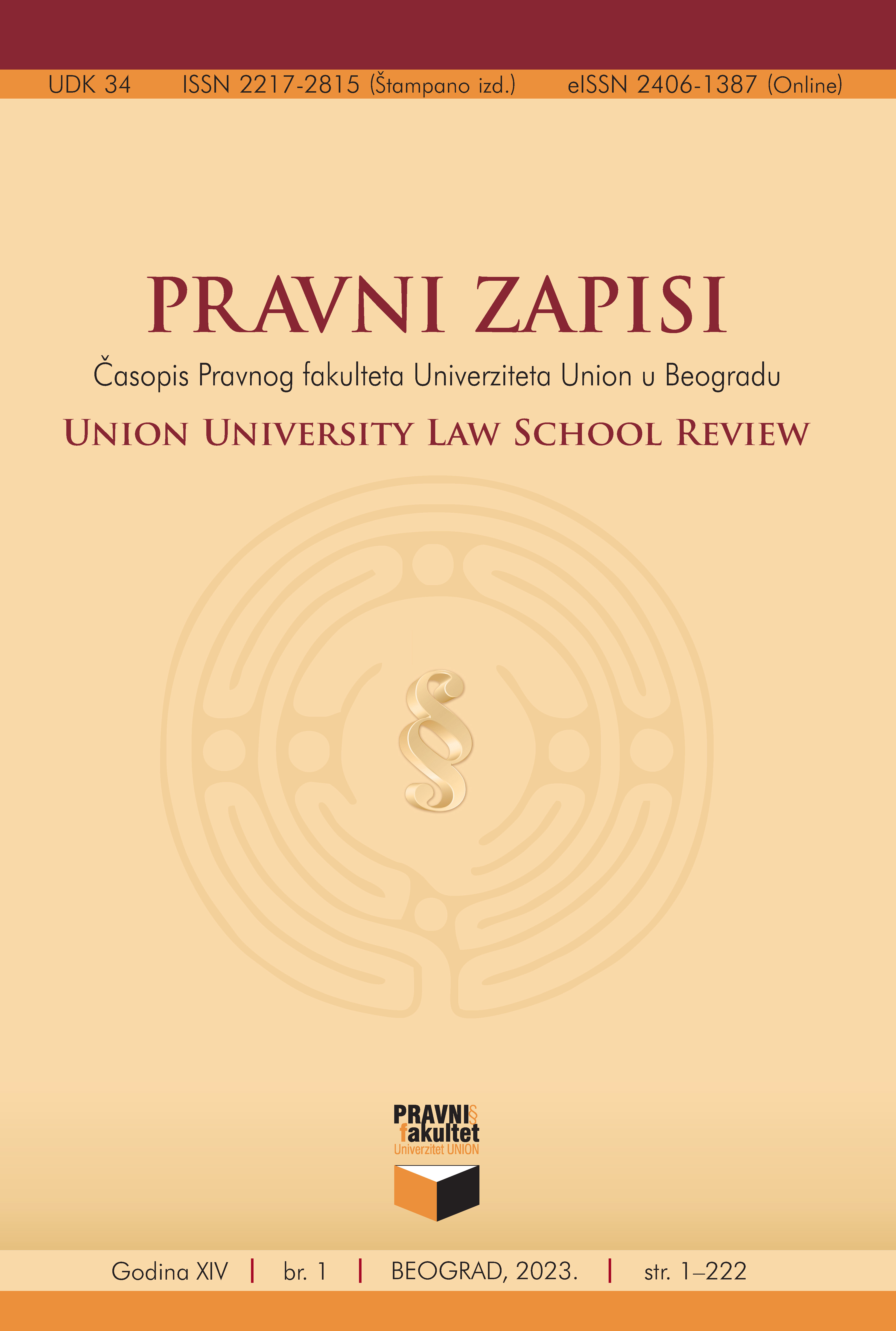
Keywords: hate speech; freedom of expression; Internet; online; media; dissemination
The borderless nature of the Internet, different national approaches to the understanding of what constitutes hate speech, as well as the danger of restrictions on the freedom of speech, make it difficult to develop appropriate mechanisms against this phenomenon. The limitations of international law in providing a universal definition of hate speech, due to the different national approaches to freedom of expression, have thwarted attempts to produce an effective international treaty in order to deal with this issue. Imposing obligations on Internet portals to establish self-regulatory mechanisms for removing hate speech content has raised concerns of non-competent censorship and potential limitations of the freedom of expression. This paper focuses on the challenges encountered in the struggle against hate speech online and possible mechanisms for combating this phenomenon.
More...